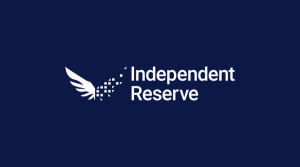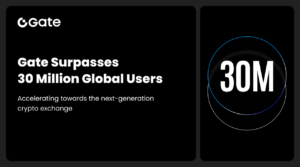The Impact of Blockchain on Social and Economic Development

Blockchain technology is considered one of the most disruptive innovations of the last decade. Initially, it was created as a decentralized ledger to record Bitcoin transactions, but its potential extends far beyond digital currencies. Blockchain can potentially transform various sectors, including finance, supply chain management, healthcare, and governance. In this article, we will explore the impact of blockchain on social and economic development.
What is Blockchain?
Blockchain is a decentralized digital ledger that is secured through cryptographic protocols. It allows users to store, manage, and transfer data in a secure, transparent, and tamper-proof manner. Blockchain uses a distributed network of computers, also known as nodes, to verify and validate transactions. Once a transaction is validated, it is recorded on the blockchain and cannot be altered or deleted.
Impact of Blockchain on Economic Development
Blockchain can potentially transform various aspects of economic development, including financial services, supply chain management, and trade. Let’s take a closer look at each of these areas.
- Financial Services
One of the most significant impacts of blockchain on economic development is its potential to disrupt the financial services industry. Blockchain can make financial transactions faster, cheaper, and more secure by eliminating intermediaries and reducing transaction fees. Additionally, blockchain can provide financial services to people who don’t have access to traditional banking services.
For instance, blockchain-based platforms like BitPesa and Bitwala provide cheaper and faster cross-border payments compared to traditional financial institutions. Blockchain can also enable decentralized lending platforms, where individuals can lend and borrow money without intermediaries. These platforms can reduce the cost of borrowing and increase access to credit for people who don’t have access to traditional banking services.
- Supply Chain Management
Blockchain can also transform supply chain management by providing transparency and traceability in the movement of goods. Using blockchain, companies can track the movement of goods from the point of origin to the point of consumption. This can help to reduce fraud, counterfeiting, and theft and ensure that products are sourced ethically and sustainably.
For instance, IBM’s Food Trust platform uses blockchain to track the movement of food products from the farm to the supermarket. This enables consumers to trace the origin of their food and ensures that it has been produced using sustainable and ethical practices.
- Trade
Blockchain can also transform international trade by reducing the time and cost of cross-border transactions. Blockchain can eliminate the need for intermediaries, such as banks and customs brokers, and reduce the time and cost of compliance with trade regulations.
For instance, the Singapore government has launched a blockchain-based platform, TradeTrust, to simplify the documentation process for trade transactions. This platform allows companies to store and share trade documents securely and efficiently, reducing the time and cost of cross-border transactions.
Impact of Blockchain on Social Development
Blockchain can also impact social development by providing solutions to social and environmental challenges. Let’s take a closer look at some of these solutions.
- Identity Management
Blockchain can provide a decentralized and secure way to manage identities. This can help to provide identity solutions to people who don’t have access to traditional identity documents, such as refugees and stateless people. Additionally, blockchain can enable people to control their identity and personal data rather than relying on centralized authorities.
For instance, the UN World Food Programme (WFP) has launched a blockchain-based platform, Building Blocks, to provide identity solutions to refugees. This platform allows refugees to receive food assistance without relying on traditional identity documents.
- Voting Systems
Blockchain can also provide a secure and transparent way to conduct elections. Blockchain-based voting systems can eliminate the risk of fraud and ensure that votes are counted accurately. Additionally, blockchain-based voting systems can increase voter turnout by providing a convenient and accessible way to vote.
For instance, the West Virginia state government has implemented a blockchain-based voting system to allow military personnel overseas to vote in the 2020 presidential election. This system provided a secure and transparent way for military personnel to vote, and it ensured that their votes were counted accurately.
- Renewable Energy
Blockchain can also enable the development of decentralized renewable energy systems. Using blockchain, individuals and communities can produce and trade renewable energy without relying on centralized utilities. Additionally, blockchain can provide transparency and accountability in the production and distribution of energy.
For instance, the Brooklyn Microgrid is a blockchain-based platform that allows residents of Brooklyn to produce and trade renewable energy. This platform enables residents to generate and sell solar energy to their neighbours, reducing their dependence on centralized utilities and promoting the use of renewable energy.
Challenges of Blockchain Adoption
Despite the potential benefits of blockchain, there are several challenges to its adoption. Let’s take a closer look at some of these challenges.
- Regulatory Challenges
One of the biggest challenges to blockchain adoption is regulatory uncertainty. Many countries have not yet developed clear regulations for blockchain-based businesses, which can create uncertainty for investors and companies. Additionally, blockchain-based businesses may face regulatory challenges related to data privacy, consumer protection, and anti-money laundering regulations.
- Technical Challenges
Blockchain technology is still in its early stages, and several technical challenges must be addressed. For instance, blockchain-based platforms may face scalability issues, as the current blockchain technology can only handle a limited number of transactions per second. Additionally, blockchain technology may face security challenges related to 51% of attacks and smart contract vulnerabilities.
- Adoption Challenges
Blockchain adoption also faces challenges related to user adoption and awareness. Many people are not familiar with blockchain technology, and they may be hesitant to adopt it due to concerns about security, usability, and trust.
Conclusion
Blockchain technology can potentially transform various sectors, including finance, supply chain management, healthcare, and governance. Additionally, blockchain can provide solutions to social and environmental challenges, such as identity management, voting systems, and renewable energy. However, blockchain adoption faces several challenges, including regulatory uncertainty, technical challenges, and adoption challenges. To fully realize the potential of blockchain technology, we need to address these challenges and create an environment that fosters innovation and collaboration.








